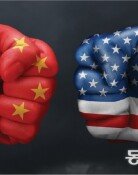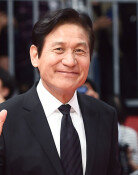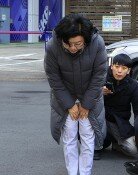FTA opponents must also apologize for opposing river project
FTA opponents must also apologize for opposing river project
Posted October. 13, 2011 01:55,
The U.S. Senate Committee on Finance unanimously approved the Korea-U.S. free trade agreement bill at a full session on Tuesday, Washington time. Both houses of Congress are set to approve the bill at a plenary session on Wednesday. Once U.S. President Barack Obama signs the bill and sends a letter of confirmation to Korea, Washington will complete its process for the ratification of the trade pact. If Korea`s National Assembly also approves the deal, which was signed in May 2007 after nearly a year of negotiations, the agreement will take effect. In an exclusive written interview with The Dong-A Ilbo, the U.S. president stressed that the deal is a win-win agreement that will be mutually beneficial to both countries, create more jobs, and expand economic opportunities for the two allies.
Korea`s parliament, however, has not even made a schedule for the deliberation of the bill, which was introduced to the parliamentary committee on foreign affairs, trade and unification. Sohn Hak-kyu, chairman of the main opposition Democratic Party, reiterated his previous call for renegotiation of the agreement to protect Korea`s national interests. What does he mean by protecting national interests when he is trying to stop Korea from implementing the agreement with the U.S. to reinvigorate the Korean economy by increasing trade, investment and jobs before Japan, China and other rival economies do so? As the global economy is expected to fall into severe recession next year, Korea, which depends heavily on international trade for economic growth, desperately needs a breakthrough by taking advantage of free trade with other economies.
Nevertheless, groups opposing free trade with the U.S. again plan to hold large-scale protests. People in rival countries who envy and fear Korea`s free trade with the world`s biggest economy will likely thank such groups with cheers.
Most of those opposed to the agreement have also objected to the Lee Myung-bak administration`s four-river restoration project. Making groundless arguments, they even filed lawsuits against the government to cause delays in the project. With the restoration almost complete, however, the country suffered far less damage from typhoons and heavy rains last summer than in previous years, with restoration costs significantly reduced. Once the project is complete and riverside areas are used in eco-friendly ways, quality of life will improve significantly for many Koreans.
Opponents of the free trade deal have also stubbornly hampered national security projects, such as the construction of a naval base on Jeju Island. The roots of the opponents can be traced back to those who opposed the construction of the Seoul-Busan Expressway and the founding of steel maker POSCO about 40 years ago. Had the Republic of Korea caved in to the opposition and given up its pursuit of challenge, change and development, the country would have remained one of the world`s poorest nations and perhaps no better off than North Korea. In that respect, opponents of the four-river project and the free trade accord are conservatives, not progressives as they define themselves.
The administration and the ruling Grand National Party should put their necks on the line in getting the agreement ratified by the National Assembly. It is their duty for the sake of the country and its people. They should never fail to effectuate the accord and make people feel the concrete effects early to prove the "sins" of the irresponsible opposition.





![용산 대통령실 사우나와 비밀통로[횡설수설/신광영]](https://dimg.donga.com/c/138/175/90/1/wps/NEWS/IMAGE/2026/01/04/133090799.1.jpg)

